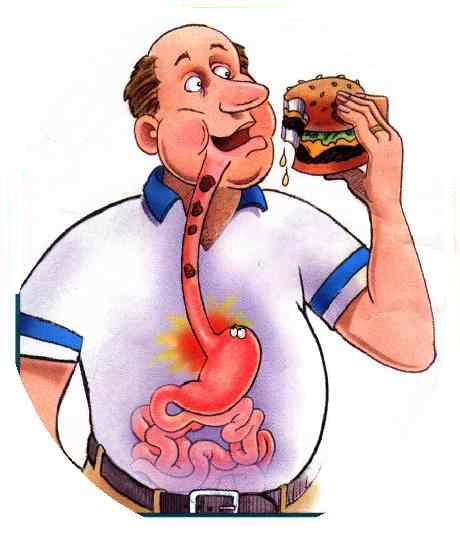-
Most people get heartburn occasionally, but if it is frequent then the patient might be suffering from GERD (Gastro-Esophageal Reflux Disease).
-
GERD is caused when the sphincter of the lower esophagus relaxes, thereby creating a regular flow of stomach acids through the esophageal tubes.
-
GERD has the potential to cause serious damage to your esophageal lining, vocal cord, lung tissues, and throat, in addition to creating ulcers.
How is GERD different from Heartburn?
GERD is the clinical disease of chronic acid reflux and Heartburn is one of its symptoms.
Symptoms of GERD:
-
Heartburn – burning, painful sensation behind the chest, and the feeling of a “bubble” behind the sternum
-
Partial vomiting of sour or bitter bile into the mouth
-
Throat pain while swallowing
-
Asthma-like symptoms, including coughing, wheezing, and sore throat
Here are “Do’s” and “Don’t” for managing GERD:
DO…
Take vitamin B12 supplements.
Vitamin B12 deficiency is a common complication with GERD patients who take antacid medication.
A normal amount of stomach acids is healthy and beneficial for digesting foods and the body cannot absorb vitamin B12 without them. Patients on PPI run a risk of developing vitamin B12 deficiency, which can lead to anemia, chronic fatigue, memory loss and a host of other harmful symptoms.
Follow a low-fat diet.
Fatty foods slow down digestion, increasing the chances of suffering a gastrointestinal backlash.
To follow a frequent small and light diet.
Avoid caffeine.
A very small cup of light coffee every morning is fine, even if you get chronic heartburn, but a tall mug of latte every three hours is pushing it.
Eat sauerkraut
Aged, fermented foods like pickles and sauerkraut have a stabilizing effect on the tummy, according to many health experts, when eaten in moderate amounts.
Take probiotics supplements.
Probiotics promote healthy bacteria, a veritable army against heartburn, diarrhea, and many other stomach problems.
Probiotics are the main ingredient in yogurt but for patients who can’t handle dairy products, opt for probiotic supplements and tonics.
DON’T…
Don’t Eat chocolate.
Chocolate is full of ingredients that disagree with acid reflux- it’s highly caffeinated, contains theobromine, a bitter alkaloid, and it’s high in fat. Opt for lower-fat dark chocolate- at least one will be getting some antioxidants.
Don’t Eat fried foods.
Rather than eating excessive oily and fried food, experimenting with roasted potatoes, eggplant, carrots, and cucumbers etc. Roasting brings out the natural flavor and requires less oil.
Don’t Eat starchy carbohydrates.
Starchy, high-sugar vegetables are difficult for the body to digest, resulting in large amounts of undigested carbs.
Carbohydrates that sit in the stomach end up contributing to excess stomach acids, a sure-fire way to cause acid reflux.
Don’t Consume alcohol.
Although alcohol is not an acidic substance, it does have a loosening effect on the lower valve of the esophagus which controls gastric acid flow.

